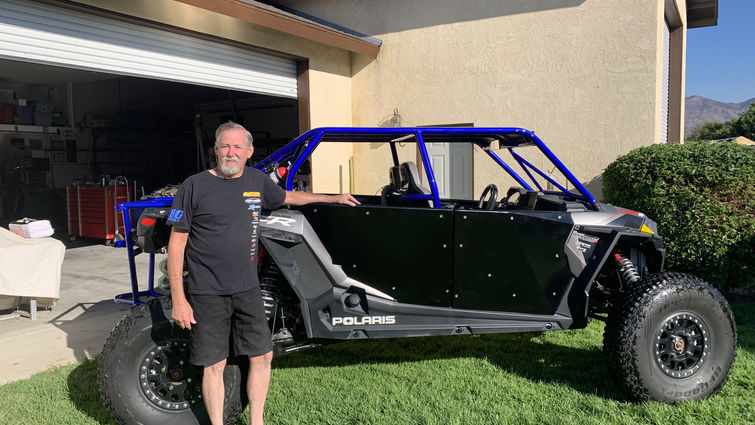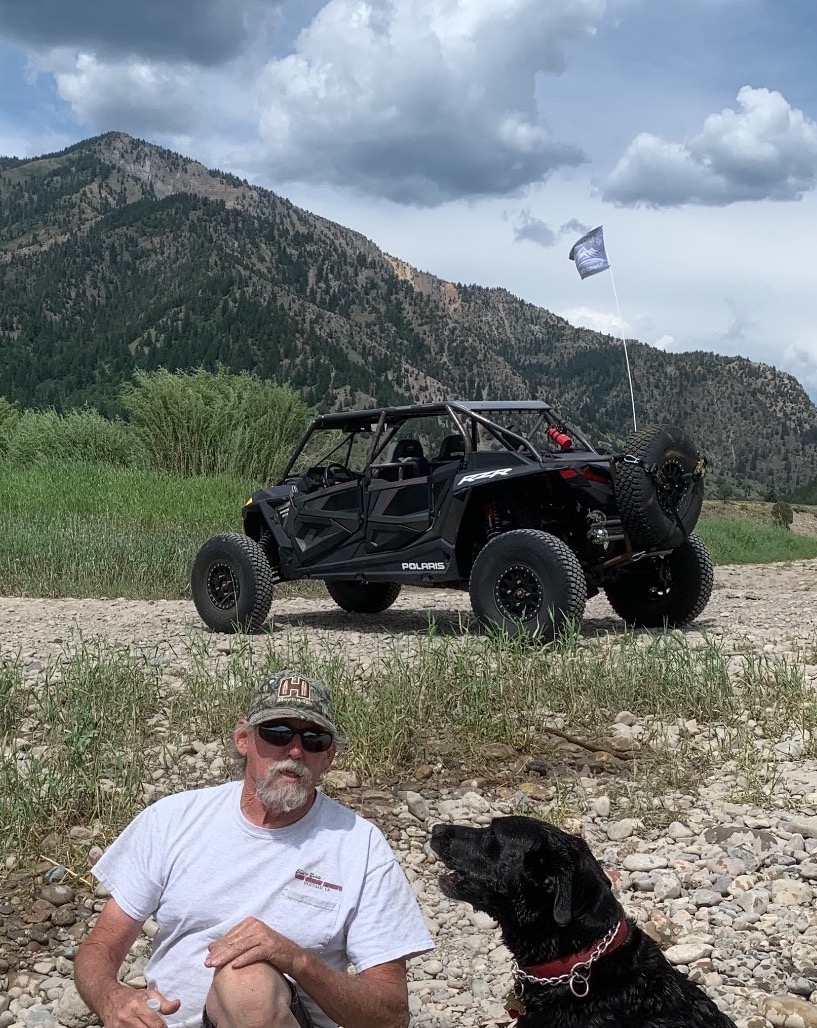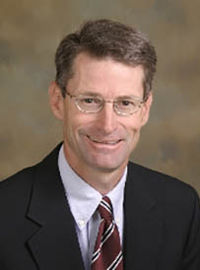
Eric Nelson poses with his off-roading vehicle.
Off-roading enthusiast Eric Nelson says he had long ago come to terms with the possibility that he would develop prostate cancer at some point in his life because of his family history — for him, it was only a matter of when. And though that time struck during the pandemic, Nelson made no delay in seeking out care from Loma Linda University Cancer Center.
A month after receiving a robotic surgery that removed the cancer, Nelson is motivated to share his story in hopes of helping others who are undergoing screenings or seeking treatment for prostate cancer during the COVID-19 pandemic.
“The bottom line is to go out and get your screenings done if you are male,” he says. “Do what you need to feel comfortable going out during a pandemic, but take control of your care and get it done because cancer isn’t going anywhere.”

Test results displayed no alarming PSA levels for over a decade. Then March 2020 came, marking the coronavirus’s rampant infectious trek across the country. Unable to attend his regularly scheduled appointment to obtain a screening during that time, Nelson waited a year to return to his doctor’s office in March 2021 for a physical checkup and PSA test — this time, the results revealed an elevated PSA level.
My prior experience with cancer taught me that cancer doesn’t go away. It only gets worse. The sooner you can get any kind of treatment, the better.Eric Nelson
Elevated PSA levels can be indicative of prostate cancer, so Nelson says he immediately sought care at the Cancer Center, where he’d previously undergone treatment for B-cell lymphoma in his neck.
“My prior experience with cancer taught me that cancer doesn’t go away,” he says. “It only gets worse. The sooner you can get any kind of treatment, the better.”
He discussed his situation with Herbert Ruckle, MD, FACS, chair of Loma Linda University Health’s Urology Department, in video consultation sessions. Ruckle re-tested Nelson’s PSA to confirm results and scheduled Nelson’s in-person visit to the Cancer Center Department of Urology for a biopsy.
“It is very important to stay on schedule for health and cancer screenings during the pandemic,” Ruckle says. “A gap in cancer screening could lead to more advanced and dangerous disease. Prostate cancer screening is easier than many screenings in that it can be mostly accomplished remotely by video visits and getting the PSA blood test.”
For anyone reluctant to get a prostate biopsy or dreading the experience, Nelson says “it is worth it” to follow through. The opportunity to catch a potentially lethal cancer and act on it far outweighs the mild discomfort from the biopsy, he says.
He’s back to flying across the desert and jumping through hoops at 70 miles per hour just like he did before.Sharon Nelson
As they awaited the biopsy results, Nelson and Ruckle continued to deliberate the best path forward. Considering Nelson’s high likelihood of having prostate cancer and anticipating pandemic-induced delays and limited openings, they decided to prepare proactively for surgery in case it was needed.
.JPG)
Nelson says he was able to get up and move around normally just a day after his surgery. And now, a month later, he reports a smooth and promising recovery trajectory. His wife Sharon reports, “He’s back to flying across the desert and jumping through hoops at 70 miles per hour just like he did before.”
.jpeg) The Nelsons credit diligent screening, early action, and shared decision-making with a skilled LLU care team for Eric’s swift and successful triumph over prostate cancer mid-pandemic.
The Nelsons credit diligent screening, early action, and shared decision-making with a skilled LLU care team for Eric’s swift and successful triumph over prostate cancer mid-pandemic.
Retired from building off-roading race cars, Nelson now drives them across barren, sandy landscapes — but he also enjoys boating and water skiing. “I go out and do all these active things while I can, before I get too old and can’t do them anymore,” he says. “It’s go time.”
Loma Linda University Health is committed to your health and safety. Learn more about prostate cancer screening and treatment options online or or call 909-558-6600 for an appointment.
Meet Our Providers
Herbert Ruckle
Chair of the Urology Department
Specialties: Urology
Learn more about this provider
